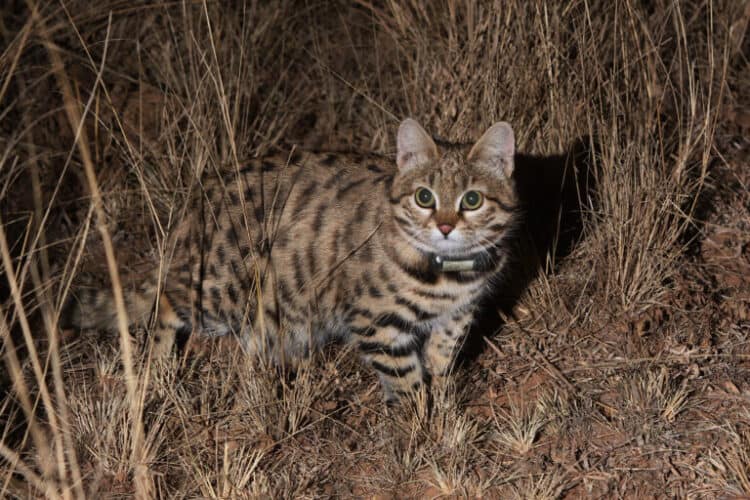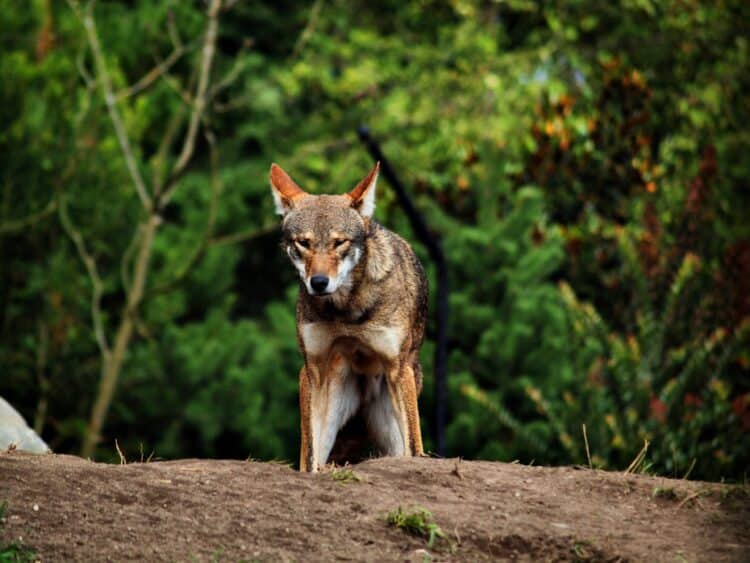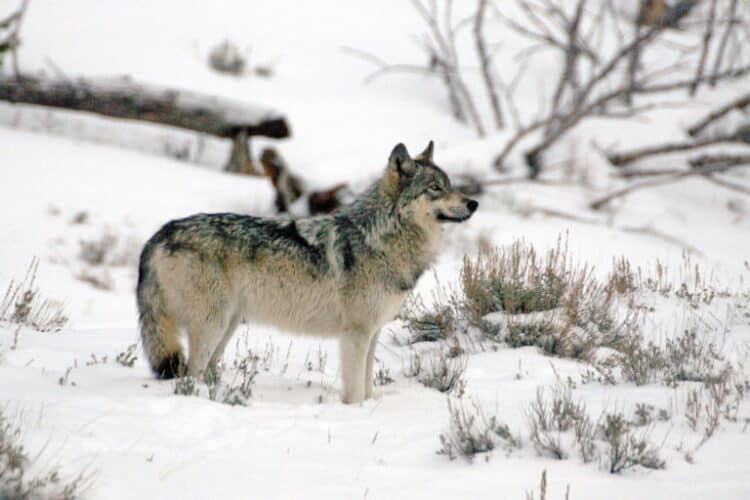During his 1991 field season, Claudio Sillero-Zubiri trekked through the rugged highlands of Ethiopia’s Bale Mountains for his PhD research, searching for the world’s rarest canid: the Ethiopian wolf (Canis simensis).
Fewer than 1,000 wolves remained, making conservation work on the species imperative. But even Sillero-Zubiri began having trouble finding them alive. Instead, he came across arid landscapes littered with their corpses.
After analyzing blood samples back at the University of Oxford, where he was studying, he soon identified the culprit: rabies.

In the years since, Sillero-Zubiri, now a professor at Oxford, and his team at the Ethiopian Wolf Project have identified four major rabies outbreaks among Ethiopian wolves in the Bale Mountains. Each time the virus hit—in 1991, 2003, 2008, and 2014—the wolf population declined by as much as 75 percent. Now, only around 500 Ethiopian wolves remain in the wild, thanks to habitat loss and the repeated outbreaks.
But there may be a straightforward solution to the wolves’ existential crisis: vaccination programs, which have helped control rabies in both wild and domestic animals across North America and Europe. In a new study in Vaccine, Sillero-Zubiri and colleagues show that immunizing Ethiopian wolves against rabies could help save the species.
“The big rabies outbreaks are catastrophic, but this vaccine could make a big difference,” he says.
Immunizing the Wolf
Rabies is unique among viruses, both for its ability to engender fear and its knack for infecting a broad range of mammals—190 species in all.
“It’s a horrible, gruesome way to die that can take many days,” says William Karesh, the executive vice president for health and policy at EcoHealth Alliance. He was not involved with the study.
Because the virus can infect so many different species, different parts of the world need different strategies for controlling the virus. In the U.S., vaccinating domestic dogs has made the largest impact, although the virus continues circulating at low levels in bats, skunks, raccoons, and foxes. Some parts of Europe have completely eradicated the virus by vaccinating both dogs and wildlife.
In the Bale Mountains, rabies circulates between a large population of domestic dogs and the Ethiopian wolf. Efforts to immunize local dogs were minimally successful at best, thanks to difficulties in reaching the sizeable feral dog population. Sillero-Zubiri had tried using injectable vaccines on the wolves, but capturing the animals to administer the vaccine was too expensive, time-consuming, and stressful on the animals.
The researchers then turned to an oral rabies vaccine that they could leave out for the wolves to find, but even that wasn’t a perfect solution. To get animals to ingest the drug, the vaccine packet came laced with a liver-flavored bait that many animals loved—but not the Ethiopian wolves.
So the scientists conducted field tests to determine how best to entice the wolves to eat the vaccine. Inserting the vaccine sachet into a dead rat—the wolves preferred food—was only partly successful. The wolves’ favorite flavors? Goat meat and intestines. (Find out how peanut butter and drones could help vaccinate the endangered black-footed ferret.)
Of the 21 wolves captured after vaccine administration, 14 tested positive for a harmless chemical that showed they had eaten the vaccine. Of these wolves, 86 percent were successfully immunized against rabies—enough for the vaccine to help the species, says Karesh.
“Even immunizing just half of the wolf population would make a huge difference for conservation purposes,” he adds. “These people did a good job, doing the rigorous work to prove that the approach would work for these wolves.”
Although the trial was a success, Sillero-Zubiri still has to convince the Ethiopian government to begin a proactive vaccination program for the wolves.
“Some people believe that if we have to start vaccinating the wolves, we’ll have to keep it up forever,” he says. “That’s not true, but it’s no reason we can’t get started.”
This article was first published by National Geographic on 05 Sep 2016.






Leave a Reply